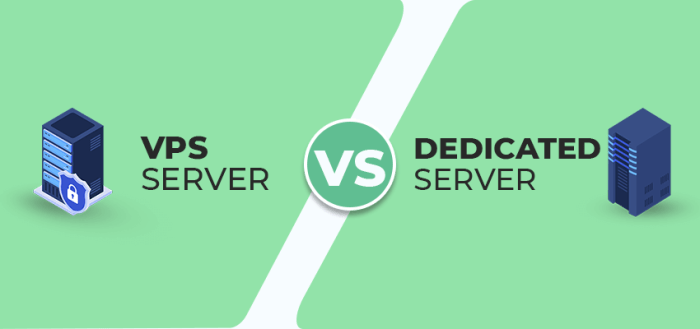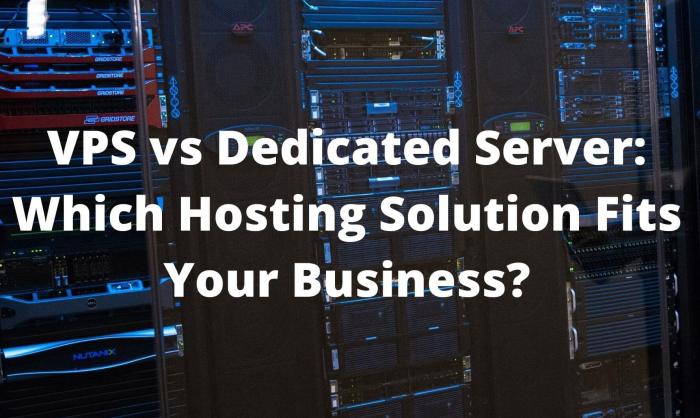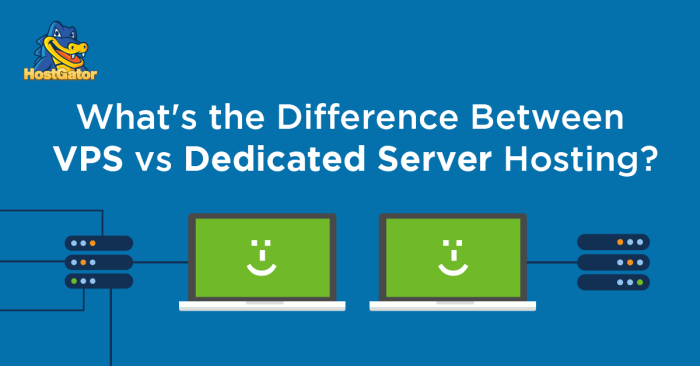In the realm of web hosting, the choice between dedicated servers and virtual private servers (VPS) often presents a dilemma. Both options offer unique advantages and drawbacks, catering to specific needs and workloads. This article delves into the intricacies of dedicated servers vs VPS, providing a comprehensive analysis to guide your decision-making process.
Understanding the fundamental differences between these hosting solutions empowers you to select the most suitable option for your website or application. Factors such as performance, control, security, scalability, and cost play pivotal roles in determining the ideal choice. By exploring each aspect in detail, we aim to provide clarity and equip you with the knowledge necessary to make an informed decision.
Dedicated Server vs VPS: Performance Comparison
Dedicated servers offer superior performance compared to VPS, as they provide exclusive access to hardware resources. This means that dedicated servers have higher CPU and RAM capacities, faster storage speeds, and greater network bandwidth. As a result, dedicated servers are better suited for demanding applications and workloads, such as high-traffic websites, enterprise software, and gaming servers.In
contrast, VPS share hardware resources with other virtual machines, which can impact performance during peak usage times. However, VPS offer a more cost-effective option for businesses that do not require the dedicated resources of a physical server.The following table provides a detailed comparison of the performance metrics of dedicated servers and VPS:| Feature | Dedicated Server | VPS ||—|—|—|| CPU | Exclusive access to multiple cores | Shared access to CPU cores || RAM | Large RAM capacity (up to several hundred gigabytes) | Limited RAM capacity (typically up to a few gigabytes) || Storage | High-speed SSD or NVMe storage | Slower HDD or SSD storage || Network Speed | Dedicated network connection | Shared network connection |Overall, dedicated servers offer superior performance and are better suited for demanding applications and workloads.
However, VPS provide a more cost-effective option for businesses that do not require the dedicated resources of a physical server.
Control and Customization

Dedicated servers offer full root access, providing unparalleled control and customization capabilities. This allows administrators to install any software, configure the server to their specific requirements, and tailor the operating system to optimize performance for their applications. VPS, on the other hand, typically provides limited root access or none at all, restricting the level of customization and software installation.
Dedicated Server Advantages
- Full root access enables complete control over the server, allowing administrators to optimize performance, security, and configurations to meet specific requirements.
- Custom software and configurations can be installed to enhance functionality, improve security, or cater to unique business needs.
- Dedicated resources ensure exclusive access to the server’s hardware, eliminating performance degradation caused by sharing resources with other users.
VPS Disadvantages
- Limited root access or its absence restricts the level of customization and software installation, potentially hindering the implementation of specific solutions or configurations.
- Shared resources with other VPS users may impact performance during peak usage times, especially for resource-intensive applications.
Security and Reliability

Dedicated servers offer enhanced security and reliability compared to VPS due to their isolated nature. They provide physical security measures like access control, biometric authentication, and 24/7 monitoring to prevent unauthorized access. Data protection is also superior, with dedicated servers employing robust encryption, firewalls, and intrusion detection systems.
Moreover, dedicated servers typically come with uptime guarantees of 99.9% or higher, ensuring minimal downtime and uninterrupted operations.
Physical Security
Dedicated servers are housed in secure data centers with restricted access and advanced surveillance systems. This physical security prevents unauthorized personnel from gaining access to the server hardware, ensuring the confidentiality and integrity of sensitive data.
Data Protection
Dedicated servers offer comprehensive data protection measures, including data encryption at rest and in transit, regular backups, and disaster recovery plans. This multi-layered approach safeguards data from unauthorized access, corruption, or loss due to hardware failures or cyberattacks.
Uptime Guarantees
Dedicated servers often come with uptime guarantees of 99.9% or higher, backed by redundant power supplies, cooling systems, and network connections. This high level of uptime ensures that critical applications and services remain available and accessible to users at all times.
Scalability and Flexibility
Dedicated servers offer unmatched scalability and flexibility compared to VPS. With a dedicated server, you have complete control over your hardware resources, allowing you to upgrade or downgrade your server as needed. You can easily add additional storage or memory to accommodate growing workloads, ensuring your server remains optimized for your specific requirements.VPS,
on the other hand, provides limited scalability due to its shared nature. While you can typically upgrade or downgrade your VPS plan, the available resources are constrained by the physical server it resides on. This can limit your ability to handle sudden spikes in traffic or accommodate rapidly growing applications.
Upgrading and Downgrading Resources
With dedicated servers, you can upgrade or downgrade your resources at any time. This allows you to quickly adapt to changing business needs without experiencing downtime. VPS providers typically offer a range of plans with different resource allocations, but switching between plans may require downtime or data migration.
Additional Storage and Memory
Dedicated servers provide the ability to add additional storage or memory as needed. This is particularly beneficial for applications that require large amounts of data storage or memory-intensive operations. VPS providers may offer limited options for adding additional resources, and these upgrades may come with additional costs.
Handling Varying Workloads
Dedicated servers are ideal for handling varying workloads, as you can allocate resources specifically to meet the demands of your applications. VPS, while suitable for low to medium workloads, may struggle to handle sudden traffic spikes or resource-intensive tasks due to the shared nature of the platform.
Cost Considerations

Dedicated servers and VPS differ in their cost structures, influenced by factors such as resource allocation, contract length, and additional services.
Resource Allocation
Dedicated servers provide exclusive access to all hardware resources, leading to higher costs compared to VPS. VPS share resources with other users on the same physical server, offering a more cost-effective option.
Contract Length
Contract length can impact costs. Dedicated servers typically require longer contracts (e.g., 12-36 months), resulting in lower monthly rates but higher upfront costs. VPS often offer more flexible contract terms (e.g., monthly or quarterly), providing lower upfront costs but potentially higher monthly fees.
Additional Services
Additional services, such as managed hosting, backup and recovery, and security features, can further influence costs. Dedicated servers often require additional investment in these services, while VPS may include some basic services in their pricing.
Conclusion
In conclusion, the choice between dedicated servers and VPS hinges on the specific requirements of your project. Dedicated servers offer unmatched performance, control, and security, but come at a higher cost. VPS, on the other hand, provides a balance between performance and affordability, with the flexibility to scale resources as needed.
Ultimately, the best decision depends on your unique circumstances and the nature of your workload. By carefully considering the factors discussed in this article, you can confidently select the hosting solution that aligns perfectly with your objectives.
Common Queries
Which option is better for high-traffic websites?
Dedicated servers are generally recommended for high-traffic websites due to their superior performance and reliability.
Can I have full control over my server with VPS?
Yes, most VPS providers offer root access, giving you complete control over your server’s configuration and software.
Is VPS more secure than shared hosting?
Yes, VPS provides enhanced security compared to shared hosting as it isolates your server from other users, reducing the risk of security breaches.
Can I upgrade my VPS to a dedicated server in the future?
Yes, many VPS providers offer seamless upgrades to dedicated servers as your requirements evolve.
What is the typical cost difference between dedicated servers and VPS?
Dedicated servers are generally more expensive than VPS due to the exclusive allocation of resources and higher maintenance costs.


